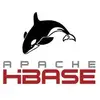
Sqoop
Sqoop is an all-in-one command-line application that is making it possible for you to transfer data between the relational database and Hadoop. This application is providing support for incremental loads of single table or SQL queries that can be able to run various accessions in order to import updates. The imports that are being made then be used to populate tables in Hive or HBase.
Sqoop is adequately designed to effectively transferring the extensive data between the apache Hadoop ad external data stores. There are multiple features available for you that include complete load, incremental load, parallel import or export, compression, load directly, Kerberos security integration, command-line interface, and more to add. Furthermore, Sqoop is very well known for its community support and contributions and has been widely used by big data companies to transfer data.
Sqoop Alternatives
#1 Apache Ambari
Apache Ambari is an all-in-one software project that permits administrators to provision, manage and monitor a Hadoop cluster and also providing the possibility to integrate Hadoop with the existing enterprise infrastructure. Apache Ambari is making the Hadoop management simpler courtesy of having easy-to-use web UI, and restful APIs adds more support.
Apache Ambari is facilitating application developers and system integrators to have ease of integration with Hadoop management, provisioning, ad monitoring capabilities, and with the extensive dashboard to track the health and status of the Hadoop clusters. Other specs include step-by-step wizard, configuration handling, system alerting, metrics collection, multiple operating system support, and more to add.
#2 Apache HBase
Apache HBase is an open-source platform that is based on non-relational databases modeled written in Java. The platform provides extensive support with easy access to real-time and big random data whenever you need them. This project is hosting a large number of tables, rows, and columns and is just like Bigtable, surfacing the significant amount of distributed data storage, so you will on top of Hadoop and HDFS. Now backing protobuf, binary data encoding options, and XML is easy because of the thrift gateway and restful web service provided by Apache HBase.
Apache HBase is supporting to perform the task related to exporting metrics with the help of Hadoop metrics subsystem to files, or Ganglia, or use JMX. The multiple features include linear and modular scalability, strictly consistent reads and write, automatic failover support, block cache, bloom filters, real-time queries, convenient base classes, automated & configurable sharing of tables, and more to add.
#3 Apache Pig
Apache Pig is a dynamic and resounding platform that allows high-level program creation that is run on Apache Hadoop. This extensive platform is suitable for analyzing large data sets comprised of high-level language in order to express data analysis platform. More likely, you have infrastructure that is designed to evaluate these programs. Apache Pig is processing the emendable structure that will do substantial parallelization that paves the way to handle large data sets with ease.
Apache Pig infrastructure comes with the compiler, which then is crucial in producing sequences of the map-reduce program, but this thing required a large-scale parallel implementation that already present. The contextual language of Apache Pig is valuable in providing the ease of programming, optimization possibilities to encode tasks, and lastly, extensibility to create own function in order to have special-purpose programming.
#4 Apache Mahout
Apache Mahout is a distributed linear algebra framework that is under the supervision of Apache software that paves the way to have free implementations. The platform provides Scala DSL designed to let mathematicians, data scientists, and statisticians get done with their own implementation of algorithms. Apache Mahout is extensible to extend to various distributed backbends and is providing expediency for modular native solvers for CPU, GPU, or CUDA acceleration.
Apache Mahout comes with Java or Scala libraries for common maths operations and primitive Java collections. There is Apache Mahout-samsara acting as DSL that allows users to use R-like syntax, so concise and clear you are as far as expressing algorithms are concerned. Moreover, you can do active development with the Apache Spark engine, and you are free to implement any engine required. Adding more, Apache Mahout is adequate enough for web techs, data stores, searching, machine learning, and data stores.
#5 Apache Avro
Apache Avro is a comprehensive data serialization system and acting as a source of data exchanger service for Apache Hadoop. You can either use these services either independently or used together, and it is making things a lot easier when it comes to exchanging big data between programs regardless of the language. Apache Avro is pretty similar to thrift and protocols, but it does not require a code generation program when dealing with schema changes.
Apache Avro is entirely a row-oriented remote procedure and serialization framework and has been using JSON for defining types and protocols, and all the data will be serialized in compact binary format. In the Apache Hadoop, Apache Avro permits support for both serialization format and wire format for persistent data and communication between Hadoop nodes and client program, respectively.
#6 Apache Oozie
Apache Oozie is an all-in-one trusted and server-based workflow scheduling system that is aiding you in managing Hadoop jobs more conveniently. The platform provides workflows which are actually a collection of control flow and action nodes with a directed acyclic graph. The primary function of this utility is to manage different types of jobs, and all the dependencies between jobs are specified.
Apache Oozie is currently supporting a different type of out-of-the-box Hadoop box because of the integration with the rest of the Hadoop stack. Apache Oozie seems to be a more extensible and scalable system that makes sure that Oozie workflow jobs are adequately triggered with the help of the availability of time and data. Moreover, Apache Oozie is a reliable option to have in starting, stop, and re-run jobs, and even you run failed workflows courtesy of having the support of action nodes and control flow nodes.
#7 ZooKeeper
ZooKeeper is a centralized software that is designed for maintaining configuration information, naming, and is acting as a source of providing distributed synchronization and group services. All the mentioned services are used by distributed applications, but implementation required serious work. ZooKeeper can be transparently viewed as an atomic broadcast system that makes the updates totally in ordered form, and its protocol is providing a core value to its system.
ZooKeeper is making its way to develop and maintain an open-source server that, in turn paving the way for a highly trusted distributed coordination system. Nodes in ZooKeeper store the data in a hierarchical namespace, mostly in the form of a tree data structure. Clients can read and write to the nodes, and it seems they have a configuration service that is being shared. The key features of ZooKeeper include trusted system working, simple architecture, fast processing, adding nodes to increase scalability, and more.










